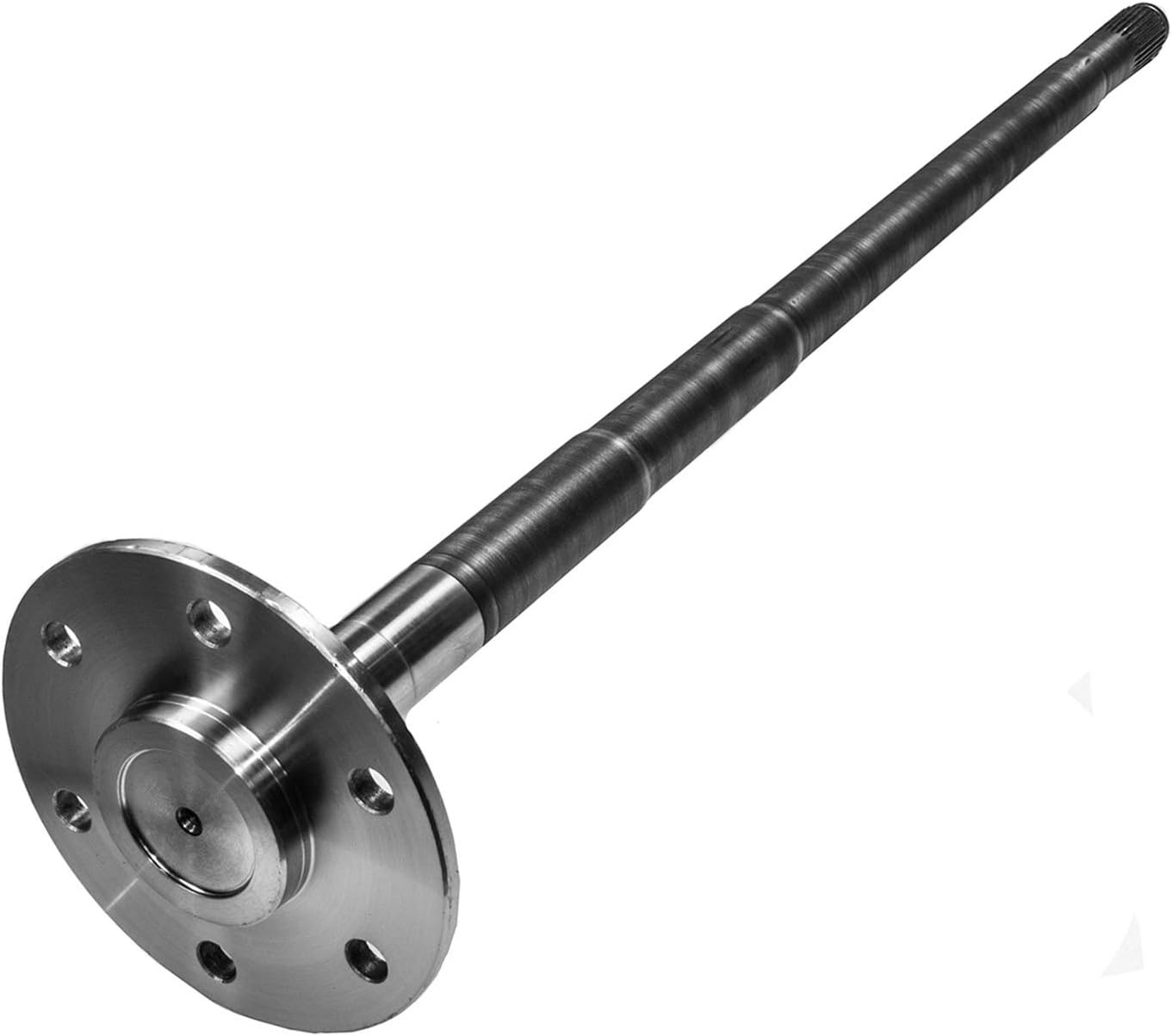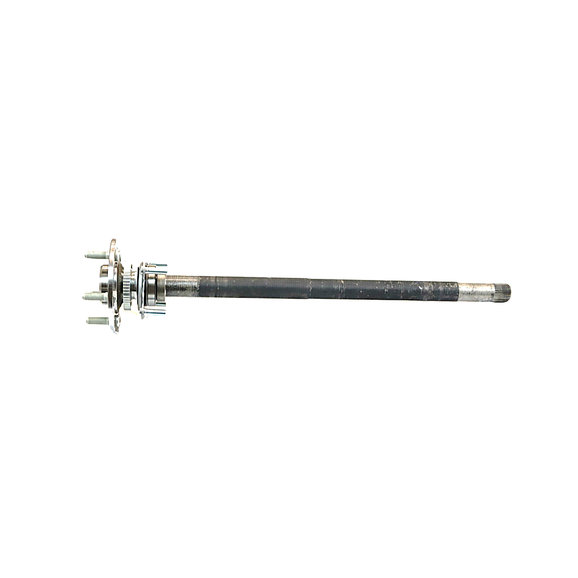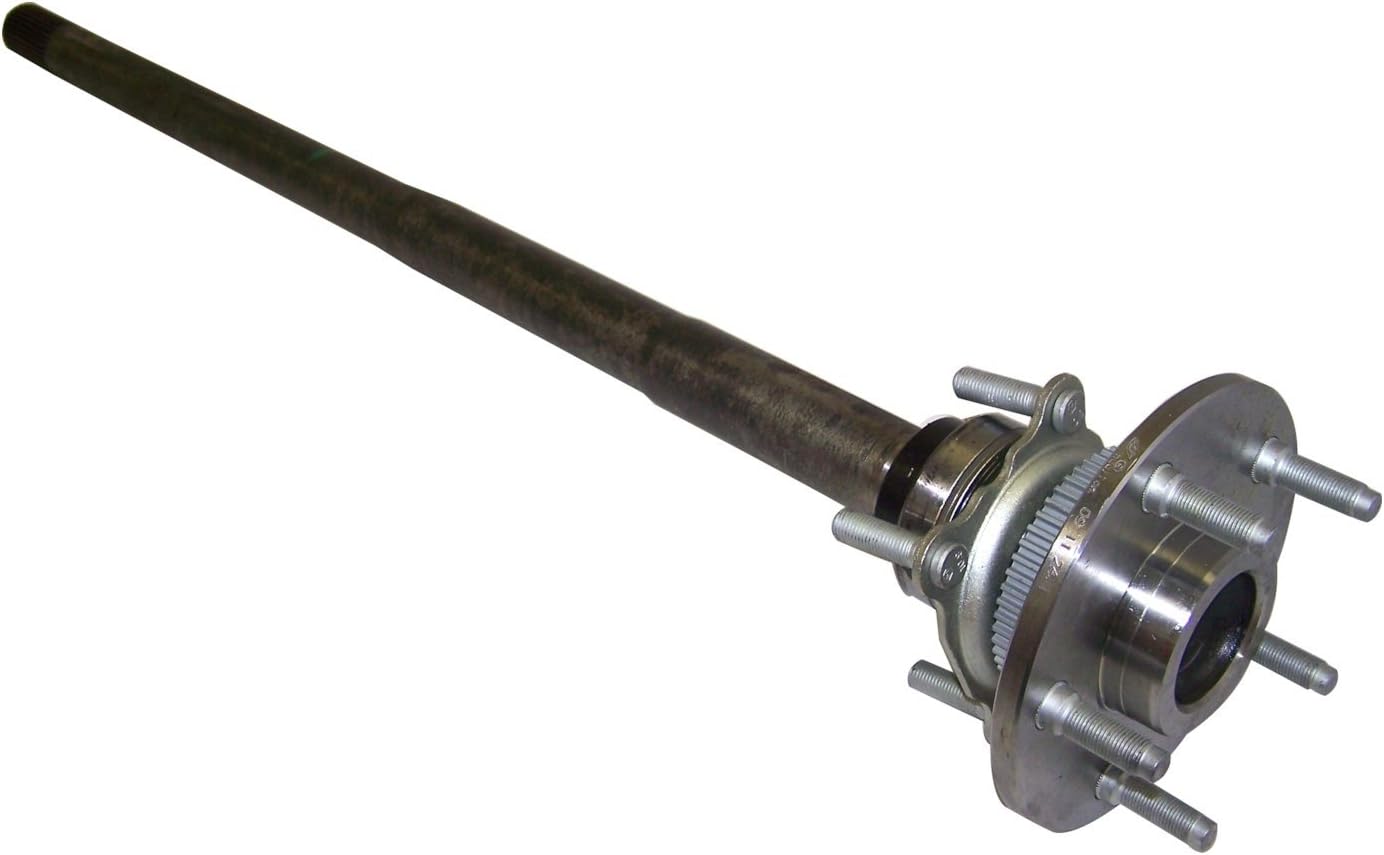Product Description
Product Description
Product Parameters
| Item | Spur Gear Axle Shaft |
| Material | 4140,4340,40Cr,42Crmo,42Crmo4,20Cr,20CrMnti, 20Crmo,35Crmo |
| OEM NO | Customize |
| Certification | ISO/TS16949 |
| Test Requirement | Magnetic Powder Test, Hardness Test, Dimension Test |
| Color | Paint , Natural Finish ,Machining All Around |
| Material | Aluminum: 5000series(5052…)/6000series(6061…)/7000series(7075…) |
| Steel: Carbon Steel,Middle Steel,Steel Alloy,etc. | |
| Stainess Steel: 303/304/316,etc. | |
| Copper/Brass/Bronze/Red Copper,etc. | |
| Plastic:ABS,PP,PC,Nylon,Delrin(POM),Bakelite,etc. | |
| Size | According to Customer’s drawing or samples |
| Process | CNC machining,Turning,Milling,Stamping,Grinding,Welding,Wire Injection,Cutting,etc. |
| Tolerance | ≥+/-0.03mm |
| Surface Treatment | (Sandblast)&(Hard)&(Color)Anodizing,(Chrome,Nickel,Zinc…)Plating,Painting,Powder Coating,Polishing,Blackened,Hardened,Lasering,Engraving,etc. |
| File Formats | ProE,SolidWorks,UG,CAD,PDF(IGS,X-T,STP,STL) |
| Sample | Available |
| Packing | Spline protect cover ,Wood box ,Waterproof membrane; Or per customers’ requirements. |
Our Advantages
Why Choose US ???
1. Equipment :
Our company boasts all necessary production equipment,
including Hydraulic press machines, Japanese CNC lathe (TAKISAWA), Korean gear hobbing machine (I SNT), gear shaping machine, machining center, CNC grinder, heat treatment line etc.
2. Processing precision:
We are a professional gear & gear shafts manufacturer. Our gears are around 6-7 grade in mass production.
3. Company:
We have 90 employees, including 10 technical staffs. Covering an area of 20000 square meters.
4. Certification :
Oue company has passed ISO 14001 and TS16949
5.Sample service :
We provide free sample for confirmation and customer bears the freight charges
6.OEM service :
Having our own factory and professional technicians,we welcome OEM orders as well.We can design and produce the specific product you need according to your detail information
Cooperation Partner
Company Profile
Our Featured Products
/* January 22, 2571 19:08:37 */!function(){function s(e,r){var a,o={};try{e&&e.split(“,”).forEach(function(e,t){e&&(a=e.match(/(.*?):(.*)$/))&&1
| Material: | Alloy Steel |
|---|---|
| Load: | Drive Shaft |
| Axis Shape: | Straight Shaft |
| Appearance Shape: | Round |
| Rotation: | Cw |
| Yield: | 5, 000PCS / Month |
| Samples: |
US$ 0/Piece
1 Piece(Min.Order) | |
|---|
| Customization: |
Available
| Customized Request |
|---|

What are the eco-friendly or sustainable aspects of axle shaft production?
Axle shaft production can incorporate several eco-friendly or sustainable practices that aim to minimize environmental impact and promote sustainability throughout the manufacturing process. Here’s a detailed explanation of the eco-friendly and sustainable aspects of axle shaft production:
- Material Selection: One of the primary considerations for eco-friendly axle shaft production is the selection of materials. Opting for sustainable materials, such as recycled steel or lightweight alloys, reduces the environmental footprint associated with raw material extraction and processing. Using recycled materials helps conserve natural resources and reduces energy consumption and greenhouse gas emissions compared to using virgin materials.
- Energy Efficiency: Promoting energy efficiency in axle shaft production is another eco-friendly aspect. Implementing energy-saving technologies, such as efficient manufacturing processes, optimized equipment, and smart controls, helps minimize energy consumption during production. Utilizing renewable energy sources, such as solar or wind power, further reduces greenhouse gas emissions and reliance on fossil fuels.
- Waste Reduction and Recycling: Axle shaft production can incorporate waste reduction and recycling practices to minimize the amount of waste generated and promote a circular economy. Implementing measures like effective waste management systems, recycling programs, and responsible disposal of hazardous materials ensures that waste is minimized, and valuable resources are recovered and reused whenever possible.
- Water Conservation: Sustainable axle shaft production also includes measures to conserve water resources. Implementing water-efficient technologies, recycling and treating water used in manufacturing processes, and implementing water management strategies help minimize water consumption and reduce the strain on freshwater resources.
- Emissions Reduction: Axle shaft production can focus on reducing emissions to minimize its environmental impact. Implementing emission control technologies, such as installing pollution control devices or adopting cleaner manufacturing processes, helps reduce air pollutants released during production. Additionally, monitoring and optimizing transportation logistics can help minimize carbon emissions associated with the transportation of raw materials and finished axle shafts.
- Life Cycle Assessment: Conducting a life cycle assessment (LCA) of axle shaft production allows for a comprehensive evaluation of the environmental impact at each stage, from raw material extraction to end-of-life disposal. LCA helps identify areas where improvements can be made, enabling manufacturers to make informed decisions and implement sustainable practices throughout the entire life cycle of the axle shafts.
- Supply Chain Sustainability: Promoting sustainability in axle shaft production involves considering the sustainability practices of suppliers and fostering sustainable partnerships throughout the supply chain. Encouraging suppliers to adhere to environmental standards, promoting responsible sourcing of raw materials, and ensuring ethical labor practices contribute to a more sustainable overall production process.
It’s important to note that specific eco-friendly and sustainable practices may vary among manufacturers and depend on factors such as the size of the production facility, available resources, and technological advancements. However, by incorporating these practices, axle shaft production can reduce its environmental impact, conserve resources, minimize waste, and contribute to a more sustainable automotive industry.
In summary, the eco-friendly and sustainable aspects of axle shaft production include material selection using recycled or sustainable materials, energy efficiency measures, waste reduction and recycling practices, water conservation efforts, emissions reduction strategies, life cycle assessment, and promoting supply chain sustainability. By adopting these practices, axle shaft manufacturers can contribute to a greener and more sustainable future.

How does axle shaft quality impact the overall durability of a vehicle?
The quality of axle shafts has a significant impact on the overall durability of a vehicle. Axle shafts play a crucial role in transmitting power from the drivetrain to the wheels and supporting the weight of the vehicle. Here’s a detailed explanation of how axle shaft quality affects the durability of a vehicle:
- Strength and Load Capacity: High-quality axle shafts are typically constructed from strong and durable materials, such as forged steel or alloy steel. These materials offer increased tensile and yield strength, allowing the axle shafts to handle higher torque loads and support the weight of the vehicle more effectively. Axle shafts with higher load capacities and structural integrity are less prone to bending, breaking, or premature failure, ensuring long-term durability.
- Resistance to Fatigue: Axle shafts are subjected to repeated and varying loads during vehicle operation, which can lead to metal fatigue over time. High-quality axle shafts are designed and manufactured to withstand these cyclic loads without developing cracks or fractures. They undergo rigorous testing and quality control processes to ensure resistance to fatigue, enhancing the overall durability of the vehicle.
- Corrosion Resistance: Axle shafts are exposed to various environmental factors, including moisture, road salt, and debris. High-quality axle shafts often feature protective coatings or treatments, such as galvanization or specialized finishes, to enhance corrosion resistance. These coatings prevent rust and corrosion from compromising the structural integrity of the axle shafts, contributing to their long-term durability.
- Precision Engineering: Axle shafts with superior quality are precisely engineered to meet strict tolerances and specifications. They are manufactured using advanced techniques, such as forging or CNC machining, to ensure dimensional accuracy and proper fitment with other drivetrain components. Precise engineering eliminates excessive play or misalignment, reducing stress on the axle shafts and enhancing the overall durability of the vehicle.
- Heat Treatment: High-quality axle shafts often undergo specialized heat treatment processes, such as induction hardening or tempering. These heat treatment techniques improve the hardness and strength of the axle shafts, making them more resistant to wear, deformation, and surface damage. Heat-treated axle shafts exhibit enhanced durability and longevity, even under demanding driving conditions.
- Manufacturer Reputation: The reputation of the axle shaft manufacturer is also a crucial factor in determining the quality and durability of the product. Reputable manufacturers with a history of producing reliable and high-quality axle shafts are more likely to deliver durable and long-lasting components. Choosing axle shafts from trusted manufacturers reduces the risk of premature failure and ensures higher overall vehicle durability.
It’s important to note that the durability of a vehicle is influenced by various other factors, including proper maintenance, driving conditions, and overall vehicle design. However, the quality of axle shafts significantly contributes to the vehicle’s ability to withstand demanding loads, harsh environments, and extended service life.
When replacing or upgrading axle shafts, it is crucial to select high-quality components that match the vehicle’s specifications and intended use. Professional installation by experienced technicians is recommended to ensure proper fitment and compatibility, further enhancing the durability and performance of the vehicle.
In summary, axle shaft quality directly impacts the overall durability of a vehicle by providing increased strength, resistance to fatigue and corrosion, precision engineering, heat treatment, and the reliability associated with reputable manufacturers. Investing in high-quality axle shafts contributes to a more durable and reliable vehicle that can withstand the demands of various driving conditions and extended use.

What is the purpose of an axle shaft in a vehicle’s drivetrain?
An axle shaft plays a crucial role in a vehicle’s drivetrain by transmitting rotational power from the differential to the wheels. It serves as a mechanical link between the differential and the wheels, allowing the transfer of torque and enabling the wheels to rotate.
1. Power Transmission:
The primary purpose of an axle shaft is to transmit power from the differential to the wheels. In a rear-wheel-drive vehicle, the axle shafts connect the differential to the rear wheels, while in a front-wheel-drive vehicle, they connect the differential or transaxle to the front wheels. When the engine generates torque, it is transferred to the transmission or transaxle, and then to the differential. The differential splits the torque between the two axle shafts, which then deliver the power to the respective wheels. This allows the wheels to rotate and propel the vehicle forward or backward.
2. Wheel Support and Suspension:
Axle shafts also provide support for the vehicle’s wheels and are an integral part of the suspension system. They bear the weight of the vehicle and help maintain proper wheel alignment and geometry. Axle shafts are designed to withstand the vertical load exerted by the vehicle’s weight and the lateral forces encountered during turns or maneuvering. By providing structural support and connection between the wheels and the drivetrain, axle shafts contribute to the overall stability, handling, and control of the vehicle.
3. Differential Functionality:
Axle shafts are essential for the proper functioning of the differential. The differential allows the wheels to rotate at different speeds while maintaining power distribution. As the vehicle negotiates turns, the inside wheels travel a shorter distance than the outside wheels. The axle shafts, connected to the differential, enable this speed differentiation by allowing the wheels to rotate independently. This differential action helps improve maneuverability, reduce tire wear, and enhance traction by allowing the wheels to maintain proper contact with the road surface.
4. Torque and Load Handling:
Axle shafts are designed to handle the torque and loads generated by the engine and transmitted through the drivetrain. They are engineered to withstand the rotational forces and torsional stress, ensuring efficient power transfer to the wheels. Axle shafts are made from durable materials, such as steel or other high-strength alloys, to withstand these forces and provide reliable performance under various driving conditions.
In summary, the purpose of an axle shaft in a vehicle’s drivetrain is to transmit rotational power from the differential to the wheels. They enable power transfer, provide support for the wheels, contribute to the functionality of the differential, and handle the torque and loads generated by the drivetrain. Axle shafts are essential components that play a vital role in the overall performance, functionality, and stability of a vehicle.


editor by CX 2024-04-03